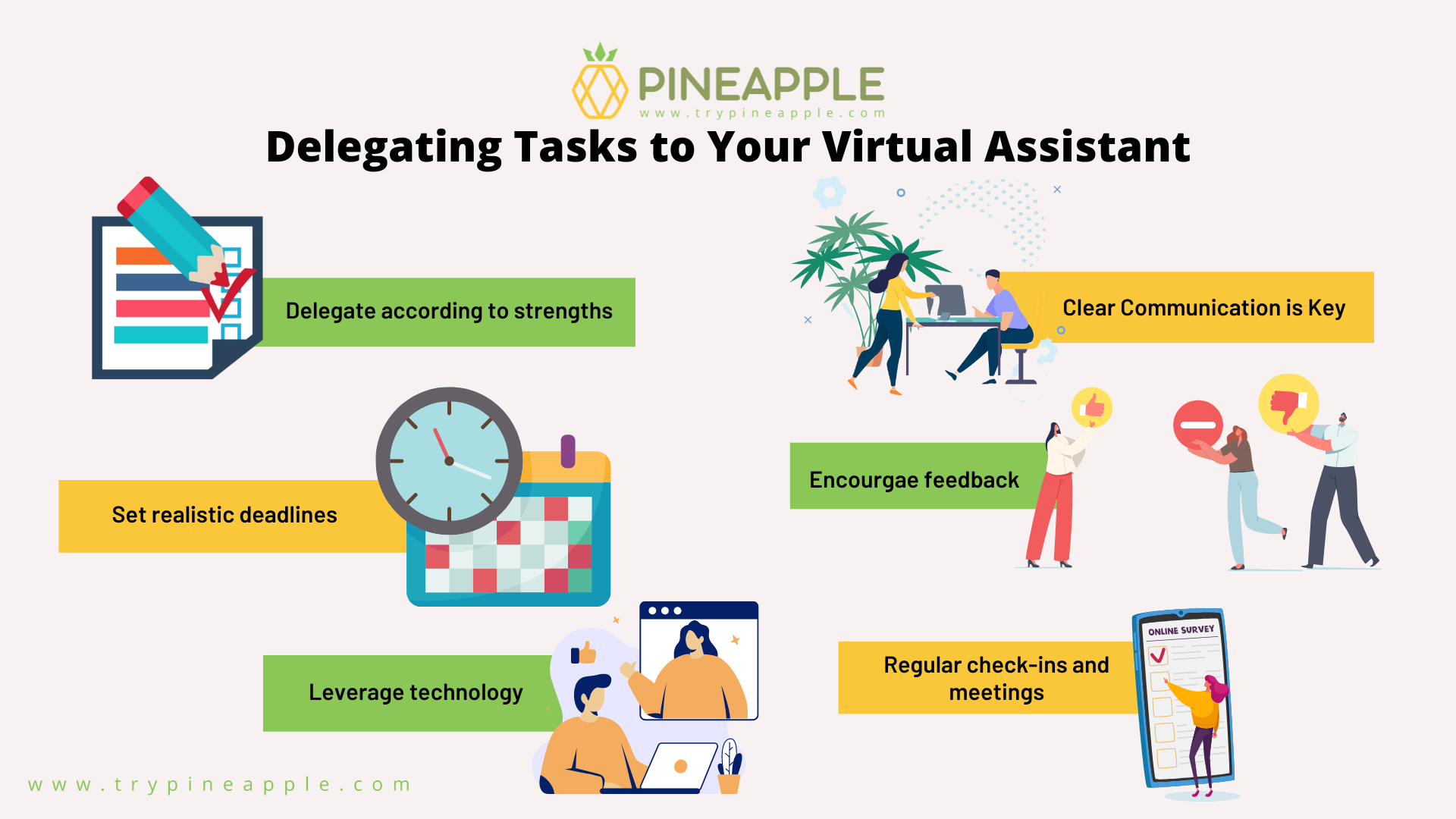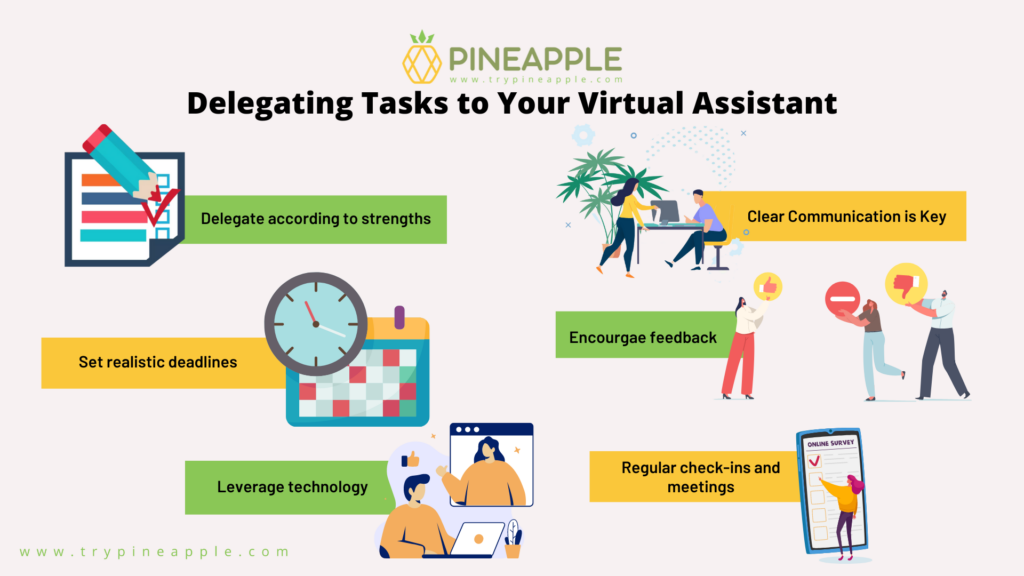Be one of the many who’ve entrusted their virtual assistant needs with Pineapple.
Book a FREE Discovery Call today and let our Sales Specialists share to you the many ways a virtual assistant can help you and your precious business.
For many entrepreneurs and business owners, relinquishing control and entrusting tasks to a virtual assistant can feel daunting. We're often accustomed to handling everything ourselves, but as our businesses grow, mastering the art of delegation becomes essential. This practice not only frees up your time but also empowers you to focus on strategic initiatives that propel your business to new heights. Let's dive into how you can delegate like a pro and take your business to new heights!
Clear Communication is Key
Let's kick things off with communication! When your virtual assistant knows exactly what is expected of them – from the what, to the how, and the when – they can confidently execute tasks, knowing that they are meeting your expectations. By laying out your expectations with precision, you're setting them up for success. This alignment prevents mix-ups and slashes the odds of errors or delays.
Here's another insightful blog post on Effective Communication in the Virtual Workplace.
Leverage Technology
Say hello to your best ally: technology. Platforms like Trello, Asana, and Slack are here to save the day, offering a ton of features to make your life easier. They work like magic, making task management a breeze and even giving you real-time updates on project progress. With these tools on your side, efficiency shoots through the roof, and tasks get done right on time – no matter where your team is. In today's world of remote work and distributed teams, this flexibility is invaluable, making delegation and management a piece of cake, no matter the distance or time zone.
Delegate According to Strengths
Picture this: You've got a team of virtual assistants, each with their own superpowers waiting to be unleashed. By recognizing and tapping into their unique abilities, you're not just assigning tasks – you're creating a powerhouse of productivity. When you match tasks with their interests and strengths, it's like igniting a spark of motivation and satisfaction. Suddenly, they're not just working; they're thriving. And as they thrive, so does your team, fueling a cycle of engagement and motivation that propels you closer to your organizational goals.
Set Realistic Deadlines
Let's talk about finding that sweet spot between ambition and realism. Sure, setting big goals is exciting, but if you're not careful with deadlines, you might end up overwhelming your virtual assistant. Take a moment to understand their workload capacity and time constraints. By setting achievable deadlines, you're not just preventing burnout; you're nurturing their well-being. Remember, a happy, balanced VA is the secret sauce to delivering top-notch work consistently. It's all about creating an environment where they can thrive, ensuring they're always at their best to help you conquer those organizational objectives.
Encourage Feedback
Think of you and your virtual assistant as a dynamic duo, working hand in hand to conquer tasks. By creating an environment where they feel safe to share ideas and insights, you're unlocking a treasure trove of valuable feedback. You'll refine your delegation strategies, tackle any hurdles, and boost your workflow performance. And the cherry on top? It builds teamwork and trust and sets the stage for success.
Regular Check-ins and Meetings
By scheduling regular check-ins or virtual meetings, you're not just ticking off boxes on a to-do list. You're opening up a world of opportunities to dive deep into ongoing projects, iron out any wrinkles, and exchange valuable feedback. These interactions aren't just meetings; they're the heartbeat of your team's collaboration. You'll see team members sharing updates, clarifying expectations, and tackling challenges head-on in real time. And the best part? Everyone stays on the same page, aligned with project objectives, goals, and progress. This proactive approach isn't just about avoiding misunderstandings; it's about setting your team up for success, one check-in at a time.
So there you have it—delegation doesn't have to be scary. Imagine freeing yourself from the nitty-gritty tasks that bog you down, allowing you to focus on the visionary aspects of your business. With clear communication, the right tools, and a focus on collaboration, you can delegate like a pro and take your business to the next level.
So, say goodbye to endless to-do lists and hello to streamlined efficiency! With our expertise and dedication, we'll transform your delegation process into a seamless operation. Are you ready to lighten your workload and unleash your full potential? Click HERE for a free consultation and let's embark on this journey together!

Be one of the many who’ve entrusted their virtual assistant needs with Pineapple.
Book a FREE Discovery Call today and let our Sales Specialists share to you the many ways a virtual assistant can help you and your precious business.




